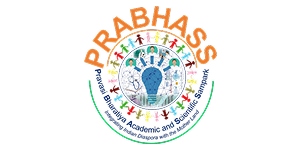India and France have a rich history of cooperation in the fields of science and technology. The cooperation ranges from health, digital, energy and oceans to applied mathematics.
2. Several linkages have been forged between both the sides, namely between MoES (Ministry of Earth Sciences), MeITY (Ministry of Electronics and Information Technology), DST (Department of Science and Technology), DBT (Department of Biotechnology), and CSIR (Council of Scientific and Industrial Research) on the Indian side, and ANR (National Research Agency), CNRS (National Centre for Scientific Research), INSERM (National Institute of Health and Medical Research), INRIA (National Institute for Research in Digital Science and Technology), and Institut Pasteur on the French side strengthening science and technology cooperation between the India and France.
3. The Indo-French Centre for the Promotion of Advanced Research (IFCPAR/CEFIPRA), established in 1987, acts as one of the key institutions driving research activities between the two sides. Located in New Delhi, the Centre is being supported by the Department of Science and Technology, Government of India, and the Ministry for Europe & Foreign Affairs, Government of France. CEFIPRA supports high quality research groups through collaborative research projects in advanced areas of basic and applied science to nurture scientific competency. The 37thGoverning Body meeting of CEFIPRA was held in Paris on 25 April 2024 and the 38th meeting was held in New Delhi on 24 February 2025 taking forward the joint science and technology agenda between the two countries. CEFIPRA has Scientific Collaborative Research Programme focusing on:
- a) academia-to-academia collaborations between Indian and French academic collaborators in various domains;
- b) Industry-Academia Research and Development Programme emphasizing developing the linkage between Industry and Academia from France and India; and
- c) Dedicated mobility support programmes for young researchers in both India and France such as the Raman–Charpak Fellowship programme, and Indo-French
Programme for Women in Science (PROWIS) dedicated to the young women scientists.
4. In April 2024, CEFIPRA’s Governing Board meeting approved four priority areas as focus areas for research: Decarbonised Hydrogen, Applied Mathematics, Health (emerging infectious diseases and metabolic & cardiovascular diseases), and Marine Sciences. The following new programs were launched in 2024:
- a) The High-Impact Research Network Programme: launching of call under High Impact Scientific Research Network Programme in the area prioritized by the CEFIPRA
Governing Board meeting
- b) Women In Science Research Programme (PROWIS): Indo-French Programme for Women in Science (PROWIS) is dedicated to young women scientists of both India and
France, and provides a platform for carrying out advanced studies and research in the frontier areas of science and technology.
- c) Indo-French Liver and Metabolic Disease Network (InFLiMeN): The initiative was successfully launched on 5 July 2024 by Union Minister Dr Jitendra Singh in New Delhi.
It is supported by India’s DST and the French MOFA. The collaborative node aspires to serve like a virtual university and promote development of new products and
technologies to benefit people suffering from liver and metabolic diseases.
5. Institutionally, India France science and technology cooperation goes back a long way. A Joint India-France Science and Technology Committee was established on 25 January 2016 in New Delhi after a joint committment by the two principals in their meeting in 2015. The first Joint Committee Meeting (JCM) was held on 25 June 2018 at New Delhi to identify, synergize and define priorities for Indo-French cooperation in science, technology and innovation. It was co-chaired for the Indian side by Secretary, DST and from the French side by the Director General, Ministry of Higher Education and Research. The committee identified priority areas for future collaboration in:
- a) Energy
- b) Manufacturing
- c) Cyber Physical Systems
- d) Host-Microbe-Interactions in Health and Agriculture.
6. The second Joint Science and Technology Committee meeting was held on 18 January 2024. Broadly, the topics discussed for the 2nd Joint Committee Meeting included:
- a) Energy: Green Hydrogen, Energy Conservation and Storage
- b) Climate Change and Sustainable Cities: carbon capture and utilization and storage technologies, sequestration
- c) Digital Technologies: AI for Sustainability, Autonomous Navigation
- d) Quantum Technology: Quantum Computing, Sensing and Metrology, Materials and Devices
- e) Health: Cancer Research and Innovations, Novel Therapeutics, Novel Diagnostics for early detection of emerging diseases, AI application in Healthcare, host-pathogen
interactions of emerging infectious diseases etc.
- f) Oceans
- g) Applied Mathematics.
7. India and France have also entered into a Memorandum of Understanding between DST and ANR France on 18 January 2024 in New Delhi. Two areas selected for the calls under this MoU are:
- a) Decarbonated Hydrogen
- b) Applied Mathematics towards Digital AI.
8. In February 2025, both countries signed a Letter of Intent between Department of Science and Technology, Government of India, and Institut National de Recherche en Informatique et en Automatique (INRIA), France, to establish the Indo-French Center for the Digital Sciences, and a Letter of Intent between PariSante Campus and the C-CAMP (Centre for Molecular Platforms), and the creation of the Indo-French Life Sciences Sister Innovation Hub.
9. Separately, to demonstrate their joint commitment to taking forward India France collaboration in areas of next generation high-end technology, President Macron took Prime Minister Modi to visit the International Thermonuclear Experimental Reactor [ITER] in Cadarache in South of France during PM Modi’s visit to France in February 2025. This was the first visit by any Head of State or Head of Government to ITER, one of the most ambitious fusion energy projects in the world today. During the visit, the leaders appreciated the progress of ITER, including the assembly of the world’s largest Tokamak, as well as the dedication of the ITER engineers and scientists working on the project. India is among the seven ITER members contributing to the project over the last two decades. Around 200 Indian scientists and associates, as well as notable industry players such as L&T, Inox India, TCS, TCE, HCL Technologies, among others, are engaged in the ITER project.
December 2025








